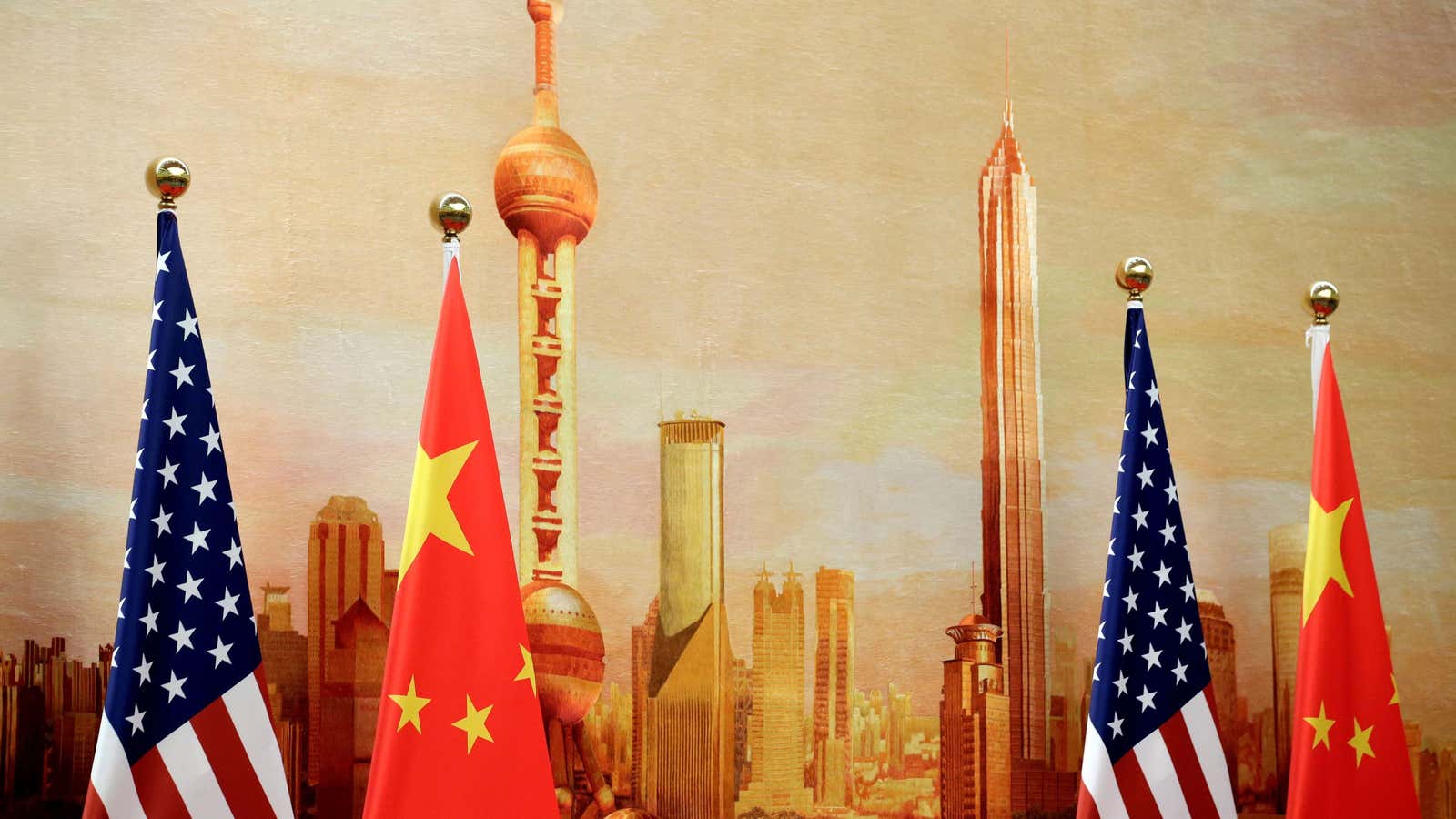The midterm results—which saw a “blue ripple” win Democrats the House—have’t brought any cheer to China.
While the results are viewed as a setback to Donald Trump, and may hold back his agenda for the remaining two years of his presidential term, that’s probably not going to apply to the trade war, say many in China, where articles under the hashtag #America’s midterm election (美国中期选举) have gathered close to 50 million views (link in Chinese) on the Weibo social platform.
“Even though Democrats and Republicans disagree on many issues, they hold exactly the same negative opinion of China… Anti-China has become the political correctness in the US.” wrote Li Chengdong (link in Chinese), a self-described e-commerce analyst who has 220,000 followers on Weibo.
This year, the US and China have imposed tit-for-tat tariffs on goods worth of billions of dollars—and Trump has threatened more to come, perhaps even on all of China’s imports. The country’s state-run media sees the tariffs as part of an effort to contain China, in other words, a matter of “national fate,” and people in China are already saying they’re seeing higher prices.
While the trade deficit with China was a frequent slogan on Trump’s campaign trail in 2016, one Weibo user said that unfriendliness to China actually began under the Democrats.
“We must bear in mind that America’s strategies towards China changed in 2010 when Obama was still in power. Hillary [Clinton]’s accusations of China during her presidential campaign were also obvious. Even now, Democrats’ leader Nancy Pelosi—she has not been friendly towards China,” wrote Beijing-based Weibo user (link in Chinese). “The differences between the two parties only lies in political styles, but they are not very different in terms of the position towards China.” (In the 2016 election, Clinton, who’s not all that popular in China, also said she would toughen trade policy toward China.)
“In terms of trade with China, the disagreements between the two parties are mostly on internal politics, there’s no difference on attitudes towards China,” wrote Ren Zeping, the chief economist of Chinese real estate developer Evergrande (link in Chinese), in a WeChat article which has garnered some 36,000 views. “It’s very likely that Trump’s tough decisions on trade with China will continue.” The only hope for compromise, he said, is if the US economy also shows signs of slowing, which might lead the two sides to negotiate some kind of trade deal. In the meantime, he said, China should “do our own thing” and commit to another round of reforms and opening up.
The idea that the midterms have changed nothing so far as China is concerned also appeared in the state-run Global Times tabloid.
“What endured the least impact from the midterm results was the China-US relationship as the tough line on China is among topics on which Democrats and Republics can agree. Losing the House will hardly have any direct bearing on Trump’s China policy,” said the paper. “What’s underlying deteriorating China-US ties is the US mentality of refusing to accept China’s rise.”
David Shambaugh, director of the China Policy Program at George Washington University, said people in China are right to think there’s an anti-China consensus in the US, and attributes it to the fact that a range of Chinese policies have had a negative impact on a wide variety of actors, from the US military, to businesses, to nonprofits, to academics and journalists. “Absent a substantial reversal of Chinese policies and actions in a far more liberal direction domestically and more restrained direction externally, the new American hard line on China can be expected to endure indefinitely,” he wrote in the South China Morning Post.
